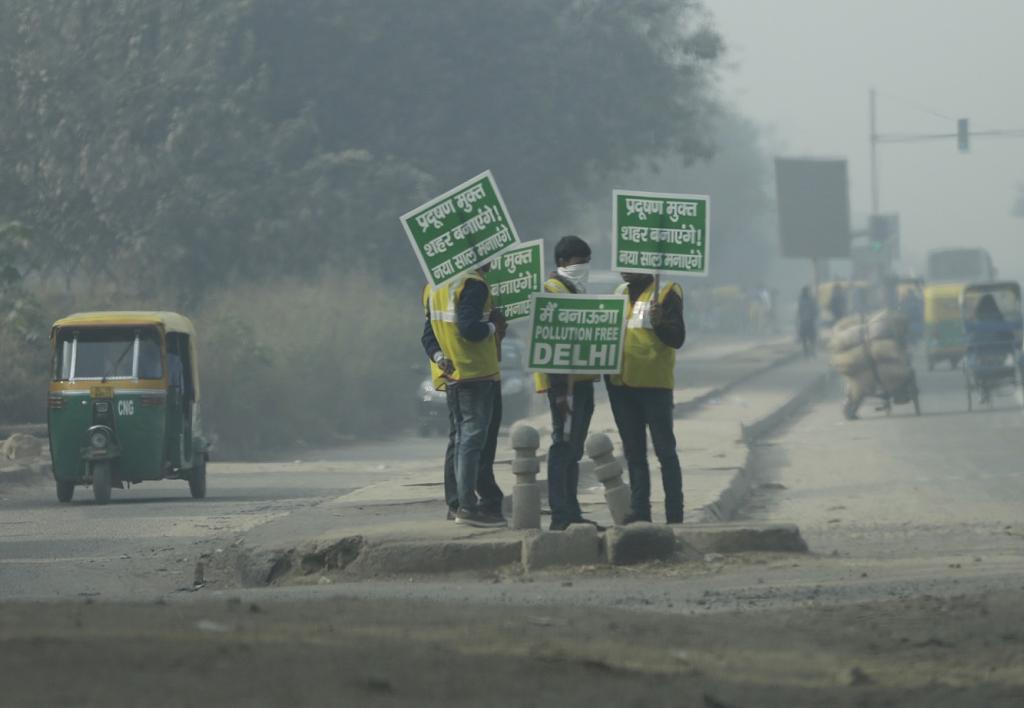Delhi Residents Want Radical Action To Combat Air Pollution

NEW DELHI: A recent poll commissioned by the Help Delhi Breathe coalition and conducted by the Human Development Institute has revealed overwhelming support for radical action to tackle air pollution amongst the capital’s residents.
The results of the polls -- based on personal interviews with 500 people across the capital -- show Delhi’s residents are concerned about being continuously exposed to toxins with 9 out of 10 saying they are concerned about air quality and 88% describing the air quality as ‘dirty or very dirty.
The research also slows that Delhi residents are ready to support some radical action to combat the problem. 88% of Delhi residents identify vehicular emissions as a leading cause of air pollution and that 69% support a ban on diesel.
Support to restrict the use of diesel for private vehicles is a clear indication that people in Delhi are ready to take bold steps to clean the air. In addition, diesel cars are a way for the rich to enjoy subsidies created to support the transportation of products across the country. The Centre for Science and Environment has recommended increase in cess for diesel, which has the potential to generate revenue for public transportation and innovation in clean fuel technology.
The polls shows that 50% of Delhiites blame air pollution on emissions from factories, and while half of Delhi's residents want to see more action from the local government, 4 out of 5 people are willing to take personal action to combat the problem.
The causes of pollution are better known than the specific effects or what people should do in response to the continued threat to their health.
The results of the poll show that the majority of people know that the air isn't healthy. However many are still confused about its health impacts. Asthma was identified by more than half as a main reason for concern, while almost a quarter cited tuberculosis and lung infections, which are primarily caused by bacteria and virus but aggravated by air pollution," said Dr Nitish Dogra, a physician and Fulbright scholar. "Other serious long term impacts of air pollution, particularly small particulates, such as lung cancer, heart disease and dementia were not specifically mentioned." he added
The range and deadliness of illnesses that Delhi residents face on a daily basis require that proper and clear information on what the air quality status is, and how people can protect their health is made available by the government.
"Last August, the Help Delhi Breathe coalition delivered a petition asking the government to place, in every district, air quality displays with health advisories in the form of symbols and text to allow people of all classes to understand how to protect themselves" said Reecha Upadhyay, the coalition's coordinator. "More than 80,000 people signed the petition to Mr. Satyendar Jain, Delhi's Health Ministers, but despite his promise to instal the displays, the winter is almost over and nothing has happened. The few displays that are available are complex to read and don't provide any health information".
When asked to give suggestions for reducing air pollution, Delhi's residents identified 20 different solutions as the promotion of plantations, reduction in number of individual cars and law enforcement.
“Urban mobility interventions that encourage and incentivize use of low/zero-polluting transportation modes like public transport, walking and cycling need to be implemented on an urgent basis along with complementary disincentives for use of personal vehicles. It’s time that Delhi’s bus fleet is increased to the desired level along with first and last mile solutions for metro”, said Akshima Ghate, TERI. “We need to implement and experiment with softer policies like flexible timings, employee incentives for use of public transport and NMT, preferential lanes/parking for high occupancy/low-polluting vehicles, and designation of low emission zones in order to bring about behavioural changes in mobility choices made by Delhi and NCR residents.”
"There's no silver bullet to the air pollution problem and the poll shows Delhi's residents understand that. The government has put forward action plans and must stick to it. New initiatives as the solar policy approved last year, which provides incentives for industries, commerce and residences to go solar and demands the adoption of solar power by all public buildings and new constructions must be quickly implemented, as they replace the pollution generated by gensets and thermal power plants" said Ramapati Kumar, CEO of the Centre for Environment and Energy Development.
Delhi can't afford another another day as one of the most polluted cities in the world.



